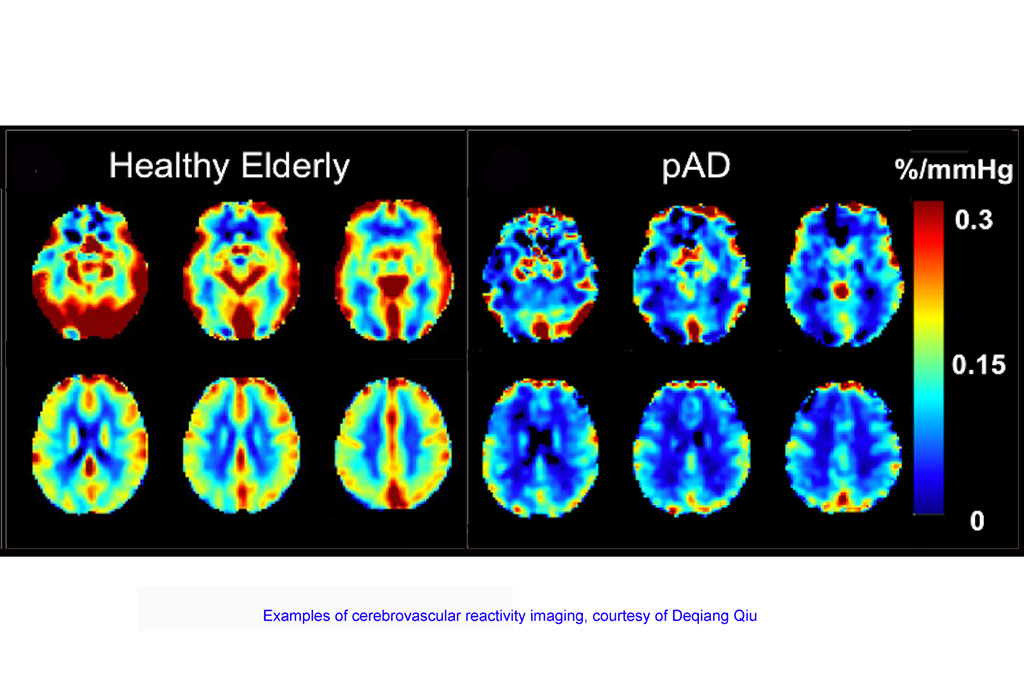New MRI Technique Simultaneously Measures Cerebral Blood Flow and Blood Oxygenation Levels for Studying Alzheimer’s Disease
Posted on 15 Feb 2022
To better understand early stages of Alzheimer's, investigators will use a new magnetic resonance imaging (MRI) technique developed by Deqiang Qiu’s lab that simultaneously measures cerebral blood flow and blood oxygenation levels.
Scientists at Emory University (Atlanta, GA, USA) will investigate how problems in blood flow, known as cerebrovascular impairment, contribute to the early phases of Alzheimer’s. The goal of the project is to study how Alzheimer’s pathology interacts with cerebrovascular impairment in the early phases of the disease, as well as the relative contributions of cerebrovascular and Alzheimer’s pathologies to cognitive impairment.

In the planned study, investigators will use a new MRI technique that simultaneously measures cerebral blood flow and blood oxygenation levels. The technique involves temporarily exposing someone to air with normal levels of oxygen and slightly elevated levels of carbon dioxide. The MRI-based approach will be combined with positron emission tomography (PET) to image the deposition of amyloid plaques in the brain, a characteristic pathology seen in Alzheimer’s that also can appear in healthy individuals.
The study will include healthy younger and elderly participants, people who are asymptomatic but display amyloid plaques via PET imaging, as well as people who are considered to have a prodromal stage of Alzheimer’s because they have mild cognitive impairment and signs of Alzheimer’s pathology. The project could eventually lead to the development of effective multi-component therapeutic interventions that target both AD and vascular pathologies.
Speaking about the technique, Deqiang Qiu, PhD, who is associate professor of radiology and imaging sciences at Emory, said, “This will increase the blood flow and oxygenation level in a normal brain, termed cerebrovascular reactivity or CVR. “However, CVR is impaired in aging and more severely impaired in Alzheimer’s disease.”
Related Links:
Emory University














